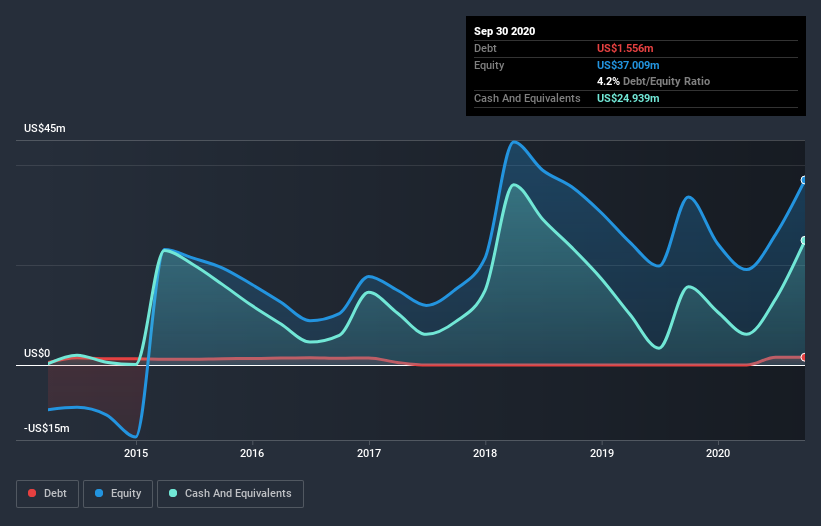Is Vuzix (NASDAQ:VUZI) A Risky Investment?
The external fund manager backed by Berkshire Hathaway's Charlie Munger, Li Lu, makes no bones about it when he says 'The biggest investment risk is not the volatility of prices, but whether you will suffer a permanent loss of capital.' It's only natural to consider a company's balance sheet when you examine how risky it is, since debt is often involved when a business collapses. We note that Vuzix Corporation (NASDAQ:VUZI) does have debt on its balance sheet. But the real question is whether this debt is making the company risky.
What Risk Does Debt Bring?
Generally speaking, debt only becomes a real problem when a company can't easily pay it off, either by raising capital or with its own cash flow. Ultimately, if the company can't fulfill its legal obligations to repay debt, shareholders could walk away with nothing. While that is not too common, we often do see indebted companies permanently diluting shareholders because lenders force them to raise capital at a distressed price. Having said that, the most common situation is where a company manages its debt reasonably well - and to its own advantage. The first thing to do when considering how much debt a business uses is to look at its cash and debt together.
View our latest analysis for Vuzix
What Is Vuzix's Debt?
You can click the graphic below for the historical numbers, but it shows that as of September 2020 Vuzix had US$1.56m of debt, an increase on none, over one year. But it also has US$24.9m in cash to offset that, meaning it has US$23.4m net cash.
A Look At Vuzix's Liabilities
According to the last reported balance sheet, Vuzix had liabilities of US$3.26m due within 12 months, and liabilities of US$1.79m due beyond 12 months. Offsetting this, it had US$24.9m in cash and US$1.16m in receivables that were due within 12 months. So it actually has US$21.1m more liquid assets than total liabilities.
This short term liquidity is a sign that Vuzix could probably pay off its debt with ease, as its balance sheet is far from stretched. Simply put, the fact that Vuzix has more cash than debt is arguably a good indication that it can manage its debt safely. The balance sheet is clearly the area to focus on when you are analysing debt. But it is future earnings, more than anything, that will determine Vuzix's ability to maintain a healthy balance sheet going forward. So if you're focused on the future you can check out this free report showing analyst profit forecasts.
Over 12 months, Vuzix reported revenue of US$9.3m, which is a gain of 39%, although it did not report any earnings before interest and tax. Shareholders probably have their fingers crossed that it can grow its way to profits.
So How Risky Is Vuzix?
We have no doubt that loss making companies are, in general, riskier than profitable ones. And we do note that Vuzix had an earnings before interest and tax (EBIT) loss, over the last year. Indeed, in that time it burnt through US$17m of cash and made a loss of US$26m. Given it only has net cash of US$23.4m, the company may need to raise more capital if it doesn't reach break-even soon. With very solid revenue growth in the last year, Vuzix may be on a path to profitability. By investing before those profits, shareholders take on more risk in the hope of bigger rewards. When analysing debt levels, the balance sheet is the obvious place to start. However, not all investment risk resides within the balance sheet - far from it. Be aware that Vuzix is showing 3 warning signs in our investment analysis , you should know about...
If you're interested in investing in businesses that can grow profits without the burden of debt, then check out this free list of growing businesses that have net cash on the balance sheet.
This article by Simply Wall St is general in nature. It does not constitute a recommendation to buy or sell any stock, and does not take account of your objectives, or your financial situation. We aim to bring you long-term focused analysis driven by fundamental data. Note that our analysis may not factor in the latest price-sensitive company announcements or qualitative material. Simply Wall St has no position in any stocks mentioned.
Have feedback on this article? Concerned about the content? Get in touch with us directly. Alternatively, email editorial-team (at) simplywallst.com.

